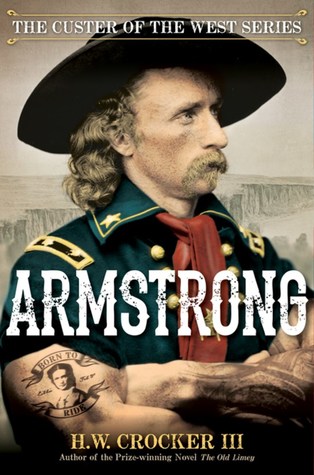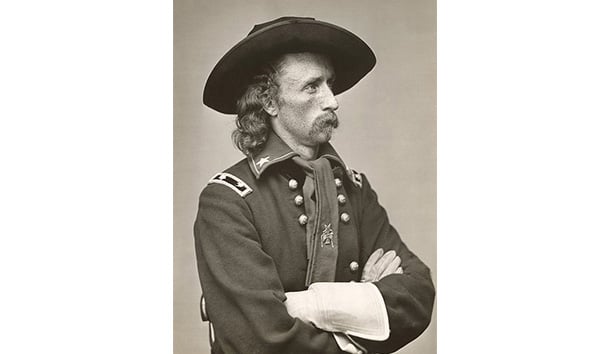If kids aren’t reading books, maybe it’s because they don’t have exciting books to read.
According to the American Psychological Association, a third of all teens have not a read a book for pleasure in a year. The report cites the usual culprits, especially the prevalence of spending time on social media, which is even more popular than television, the traditional bête noire of the bookish.
At the same time, kids are desperately in need of reading material that teaches them something positive about American history. The history books that schools foist on them are riddled with anti-American narratives and explicitly unpatriotic themes that leave them questioning the value of being an American at all.
I’ve just read a book that could change that. Dubbed “A Dangerous Book for Dads (and Their Sons),” Armstrong, by best-selling author H.W. Crocker III, is a hilariously funny alternative-history adventure story set in the Old West. The premise has Lt. Col. George Armstrong Custer surviving the Battle of the Little Big Horn to become a heroic knight-errant, in the tradition of Shane or Paladin.
Custer—taken unconscious from the battlefield and enslaved by the white wife of a Sioux warrior he killed—adopts the persona of Armstrong, and sets off on his adventures. He is soon joined by a colorful cast of characters including a troupe of Chinese acrobats (of course!), a Crow Indian scout, a former Rebel solider and others they encounter along the way. They soon become embroiled in righting wrongs in the aptly named town of Bloody Gulch, Montana, with plenty of adventures and twists of fate to keep the pages turning.
Custer’s multicultural band of vagabonds is the only politically-correct aspect of this book, which revels in period tropes but always in a positive and humorous spirit. Harry Crocker’s bold prose will definitely not please your average humorless progressive social justice warrior, but then again what would? Crocker treats his subjects with respect while not descending into the fawning preachiness that characterizes much contemporary period fiction.
Armstrong, which is the first in a series, is written from a historically-informed point of view that is reminiscent of George MacDonald Fraser’s Flashman novels. There is also an element of mystery that evokes the TV series The Fugitive, as Custer maintains his anonymity in order to hunt down the man who betrayed the Seventh Cavalry and led them to destruction at Little Big Horn.
I know the real Custer; I even wrote the book. Custer’s true-life story reads like fiction, so it is an easy transition into the “What-if” scenario in which he continues his adventures. This is the kind of book young people should want to read, which will challenge them and widen their horizons. It is part history, part humor, part drama, and all-around entertainment. If anything will get them to switch off corrosive social media and enjoy reading just for the fun of it, Armstrong has a shot. It may be against heavy odds, but when did George Armstrong Custer ever back down from a challenge?

A review of Armstrong (The Custer of the West) by H. W. Crocker III, Regnery Fiction (2018).
Originally published at Eagle Action Report.



Leave a Reply